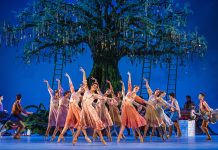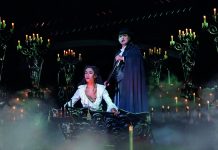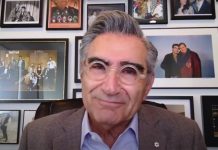I disapprove of what you say, but I will defend to the death your right to say it. ~Voltaire
Banned Books Week, brought to us every year by the American Library Association’s Office of Intellectual Freedom, is an opportunity to teach our children about the importance of the freedom of speech.
Banned Books Week was kicked off in Chicago on Sept. 25 this year with a “Read Out,” in which the authors of the 10 most challenged books of this year read from their works and shared experiences as targets of censors. In its 29th year, BBW events large and small have been taking place nationwide throughout this week.
Challenged books in this decade have included “Harry Potter” by JK Rowling, “Of Mice and Men” by John Steinbeck, and “The Adventures of Huckleberry Finn” by Mark Twain, “Catcher in the Rye” by J.D. Salinger, the “Twilight” series by Stephanie Meyer, and “To Kill a Mockingbird” by Harper Lee.
The American Library Association defines the difference between a “challenge” and a “ban.” A challenge is a formal written complaint seeking to remove or restrict materials, based upon the objections of a person or group. A ban is the actual removal of those materials.
ALA’s basic policy concerning access to information states that, “Librarians and governing bodies should maintain that parents, and only parents, have the right and the responsibility to restrict the access of their children – and only their children – to library resources.”
Books are challenged for a variety of reasons. The largest group that challenges books is parents and the most common reasons are: offensive language, unsuited to age group, sexually explicit, homosexuality, violence, or drugs.
In total, there were 460 challenges reported to the ALA’s Office for Intellectual Freedom in 2009. The office estimates that only 20-25% of challenges are reported. In actuality, just this past year there were probably closer to 2,000 attempts to remove books from shelves of school and public libraries across the country.
A school library is at the heart of Banned Books Week. When I first sat down to write this column, I called Corona del Mar and Newport Harbor high schools and Ensign Intermediate School, intending to highlight ways in which the school librarians had planned to observe and celebrate Banned Books Week this year. The ALA website offers suggestions and a BBW store with posters, bookmarks, and cited court cases. Perhaps a PTA-sponsored guest speaker. Or a creative display using classics which once were banned and are now required reading.
I got my pad of paper and pen, made the three phone calls, was connected to the librarian at each school, asked what was planned for Banned Books Week and then was saddened by the responses I received.
The librarian at Newport Harbor High School said, “No, we don’t do anything for that.”
The librarian at CdM said, “We just opened our library.” Curious, after three weeks of school, why the library was justopening, I asked if they had remodeled or something. She explained that the library had been used for distributing textbooks.
The librarian at Ensign said, “We don’t like to focus on the bad, we like to focus on the good.”
What?
A child’s education is incomplete without an understanding of our protected freedoms and the ever-present danger of losing them. It’s time to wake up and smell the First Amendment – in this case the intoxicating aroma of ink on paper.




